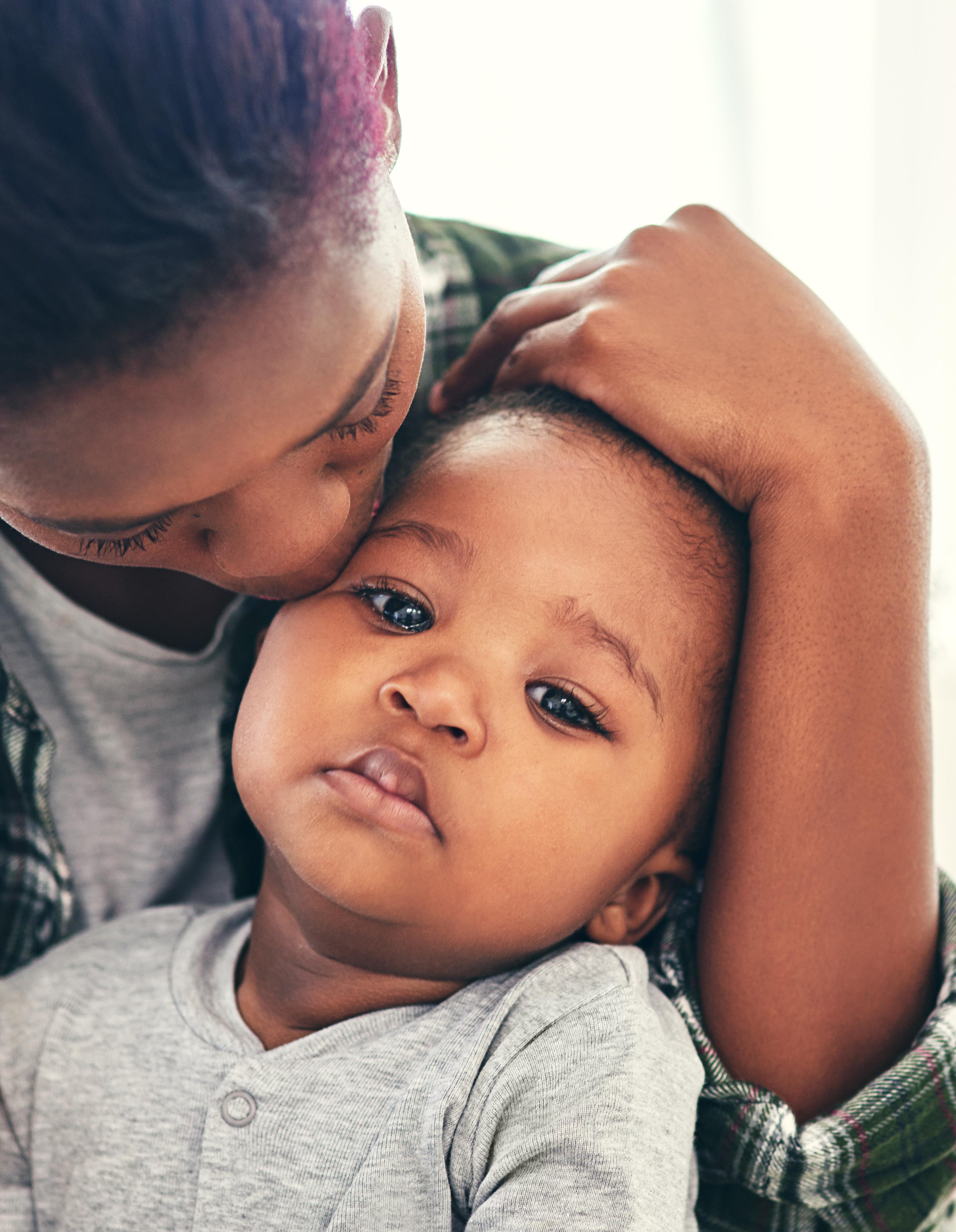

60,000 1/3 40%
hungry children of the population obese of children living in poverty
These aren’t statistics from the developing world. This is happening right here, right now, in Philadelphia. Despite being home to some of the nation’s best academic and healthcare resources, Philadelphia is considered the poorest and unhealthiest big city in America.
Jefferson is taking a leadership role in changing that reputation with the launch of the Philadelphia Collaborative for Health Equity (P-CHE). This ambitious new program leverages the power of collective impact to address health disparities head on, bringing together stakeholders throughout the city to identify the social and economic factors affecting community health—and creating targeted solutions to overcome them.
P-CHE is a bold solution to an increasingly complex problem - one that Jefferson cannot tackle alone. We have the vision. We have the leadership. With the partnership and support of benefactors like you, we can improve the lives of Philadelphians for generations to come.
 Stephen K. Klasko, MD, MBA
President, Thomas Jefferson University CEO, Jefferson Health
Stephen K. Klasko, MD, MBA
President, Thomas Jefferson University CEO, Jefferson Health
Philadelphia’s Challenge
In Philadelphia, your ZIP code is a better predictor of health than your genetic code. Today, the life expectancy of a baby born in Center City is more than a decade longer than one born in South Philadelphia, and 20 years longer than a baby born in North Philadelphia.
Life Expectancy in Philadelphia
SHORTEST: 68 Years
LONGEST: 88 Years
Home to an extensive art and culture scene, a large and diverse population of 1.5 million, and the highest concentration of universities and academic medical centers per population — in many ways, Philadelphia has the indicators of a thriving, vibrant city. Yet, it is one of the worst big cities in the nation for poverty and health outcomes.
Health and success are inextricably intertwined. Children do better in school when they are nourished. Families can lead more active lives and better connect to their communities when neighborhoods are safe. Workers have better attendance and can pursue better opportunities when they can manage their chronic disease and avoid hospitalization. In short, healthy individuals have the unfettered ability to learn, work and engage in their community and surroundings.
At a time when more than a quarter of all Philadelphians live in poverty, there is no one-size-fits-all solution to the Philadelphia Challenge. It will take targeted efforts addressing the multiple social determinants of health impacting each Philadelphia community.
1 in 3 Philadelphians are obese
20 percentage points higher than the global rate of just 13%
1 in 5 Philadelphia families experience food insecurity
More than half of Philadelphians spend at least 30% of their income on rent
This is the second highest rate among large U.S. cities and is a reflection of low incomes, rather than high home values.
2nd highest in large U.S. cities Detroit
Unemployment in Philadelphia is the 2nd highest in large U.S. cities
95% higher rate of infant mortality than the EU
Philadelphia has the second highest unemployment rate among large U.S. cities. In 2016, unemployment fell in many other cities, but changed relatively little in Philadelphia.
40,000 vacant parcels in Philadelphia contributing to blight, neglect,and crime
Jefferson: A Leader In Community Care
It’s a bold move for an academic medical center to take the lead in bringing together multiple stakeholders to achieve health equity—but this effort is also quintessentially Jefferson. Our longstanding commitment to providing equitable care for every Philadelphian is unrivaled, and no organization is better positioned to succeed, with the right support.
Our growing and expanded health network of 14 hospitals, as well as our multiple community outreach programs, provides us with hospitals and partnerships closest to the most disadvantaged residents, and as stewards of the entire health ecosystem, we have an unparalleled track record for putting people first.
Our foundational assets—which include a Center for Cancer Disparities, Center for Refugee Health, Center for Urban Health, the Jefferson Latina Women’s Clinic, Institute of Emerging Health Professions—have provided coordinated resources to drive public health programming addressing the many needs of our residents in our community. We have demonstrated the ability to launch and execute major initiatives that touch our surrounding communities, and the Philadelphia Collaborative for Health Equity will build upon Jefferson’s extensive legacy and experience in serving those in greatest need.
Jefferson serves
Home to the Nation’s First College of Population Health with a strong portfolio of health disparities research and public health programs. people
at 14 hospitals in 29 zip codes
Jefferson is a proven community collaborator
• 25+ year partnership with Project Home
• Founding member of the Philadelphia Refugee Health Collaborative
• Home of the Latina Women’s Clinic in partnership with Puentes de Salud
2/3 of Philadelphia’s population is covered by Jefferson’s community benefit area
Jefferson is one of only four programs in the nation recognized by the Centers for Disease Control as a Center of Excellence in Refugee Healthcare.
Our History Over 40 Years of Collaboration and Impact

Jefferson’s Department of Family and Community Medicine is established.
1974
JeffHope gets approval.
JeffHope is a student-run organization that aims to improve access to healthcare for the homeless and underserved population of Philadelphia, as well as to educate students, residents, and faculty members about medical issues, homelessness, and poverty. It was formed in 1991 by a group of medical students who saw a need in the homeless community for proper medical care and the potential opportunities for health professionals to reach out to this population.
1992
Department of Family and Community Medicine launches a home visit program.
1993
JeffHope clinic at St. Columba’s becomes operational.
1996
JeffHope partners with Prevention Point needle exchange program.
1999
Department of Family and Community Medicine begins a partnership with Youth Emergency Services.
2001 Chinatown Clinic opens.
2003 Puentes de Salud opens.
2008
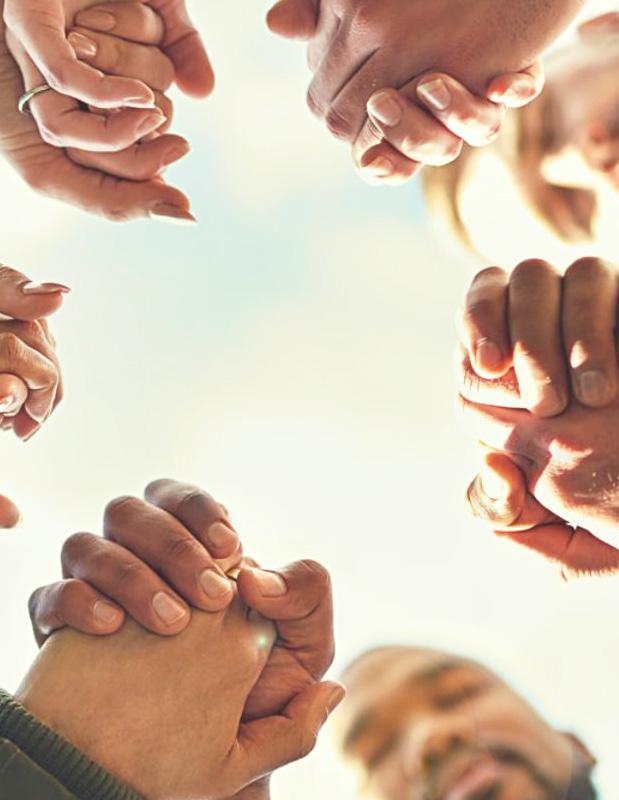
2015
STEP-UP launches as a part of Jefferson’s pipeline programs.
2015
Project HOME’s Stephen Klein Wellness Center opens. We are proud to partner with the Stephen Klein Wellness Center to address the health and wellness needs of people who are currently homeless, formerly homeless, and people living in the North Philadelphia community.
College of Population Health is established.
The first college of its kind in the U.S., the College of Population Health is dedicated to exploring the policies and forces that define the health and well-being of populations.
Jefferson Center for Refugee Health is established.
The Jefferson Center for Refugee Health is created with a grant from the Department of Health and Human Services, and Dr. Marc Altshuler is named Director.
2017
2006
Center for Urban Health is established.
The Jefferson Center for Urban Health is designed to improve the health and well-being of Philadelphia citizens both young and old by marshaling Jefferson’s resources and partnering with community organizations and neighborhoods.
2016
Future Health Professionals, Saturday Academy, and Occupational Therapy STEP-UP launch as a part of Jefferson’s pipeline programs.
You Make It Possible.
P-CHE is a vital step toward reducing the health disparities affecting Philadelphia’s most vulnerable populations. With philanthropic support, we can make a giant leap toward improving the lives of all Philadelphians — now and in perpetuity.
2019 & Beyond
Jefferson signs a memo of understanding to collaborate with Esperanza.
The Philadelphia Collaborative for Health Equity (P-CHE) is established.
The Philadelphia Collaborative for Health Equity (P-CHE) is established.
Nursing and Physical Therapy STEP-UP launch as a part of Jefferson’s pipeline programs.
2016
The Steven H. Korman Center for Community Engagement opens.
P-CHE’s Leadership
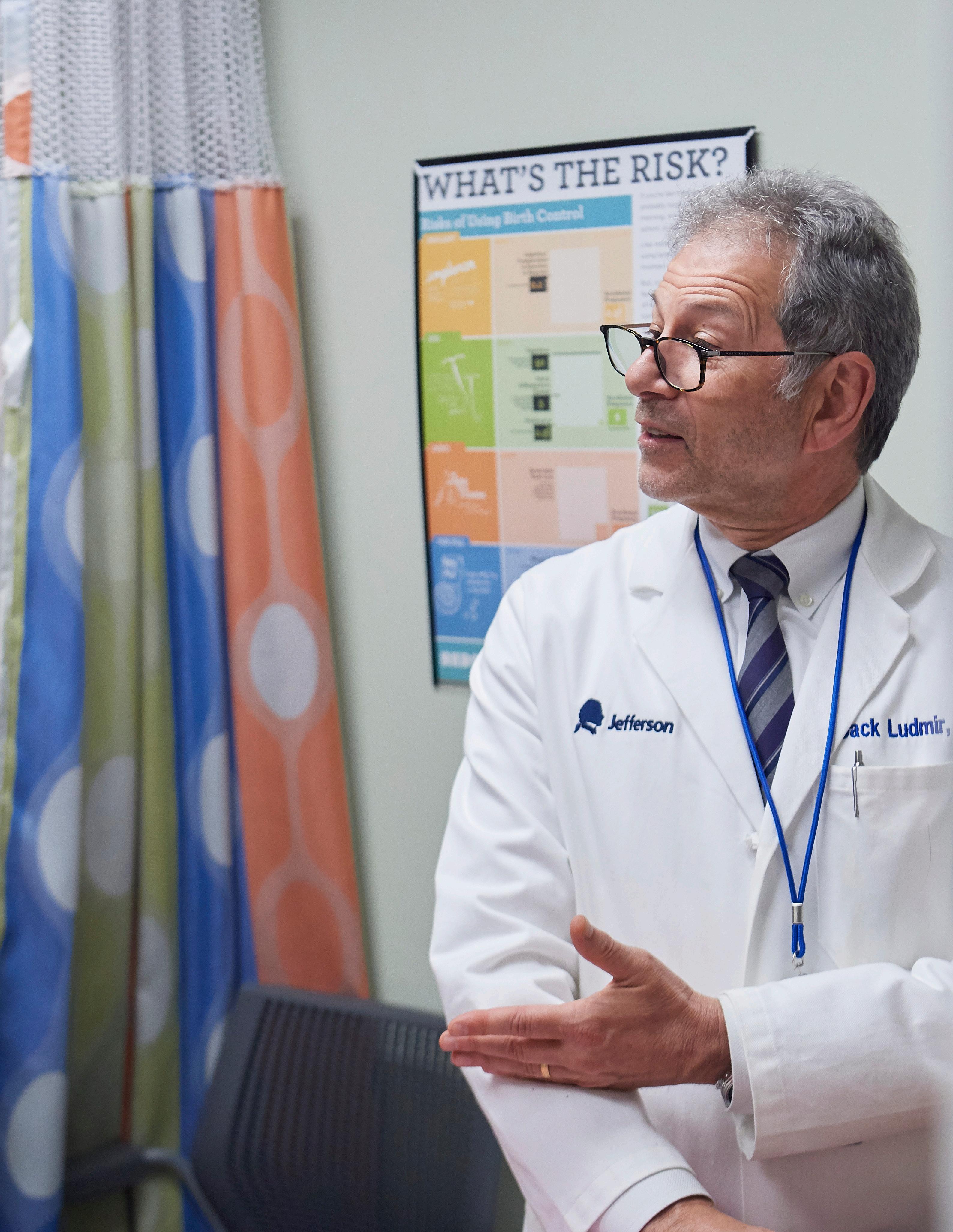
Jack Ludmir, MD
Executive Director, P-CHE
Jack Ludmir, MD, is Executive Vice President for Equity, Associate Provost for Community Engagement, Enterprise Director of Women and Children’s Service Line, Professor of Obstetrics and Gynecology, and Executive Director of P-CHE.
Dr. Ludmir has a long legacy of helping the underserved in Philadelphia as the co-founder of Puentes de Salud, Latina Community Health Services, and the newly formed Jefferson Latina Clinic, which offers free and low-cost healthcare and social services to the uninsured Philadelphia immigrant population.
Formerly, he was President of Women and Children’s Health Services, which is currently named the Ludmir Center for Women’s Health in South Philadelphia. As Executive Director, Dr. Ludmir is charged with developing strategic plans and overseeing operations of the Philadelphia Collaborative for Health Equity.
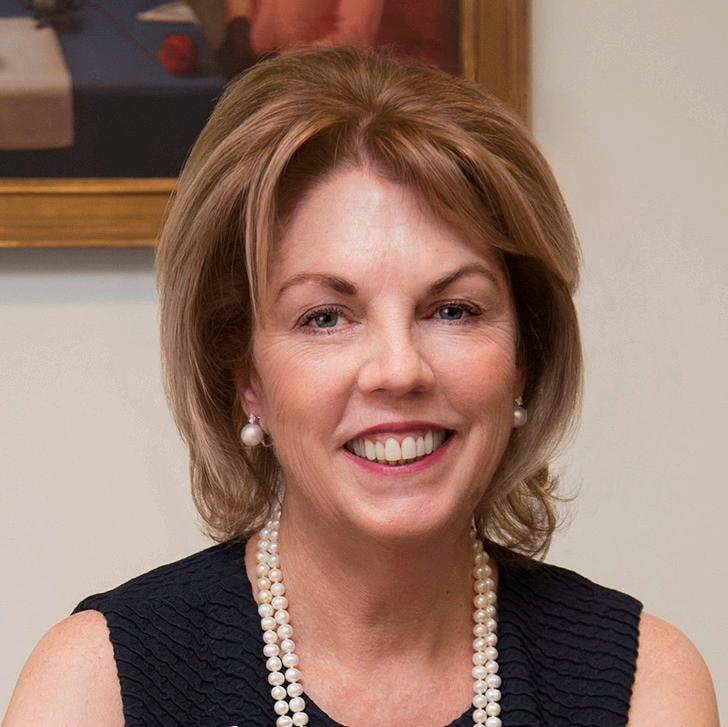
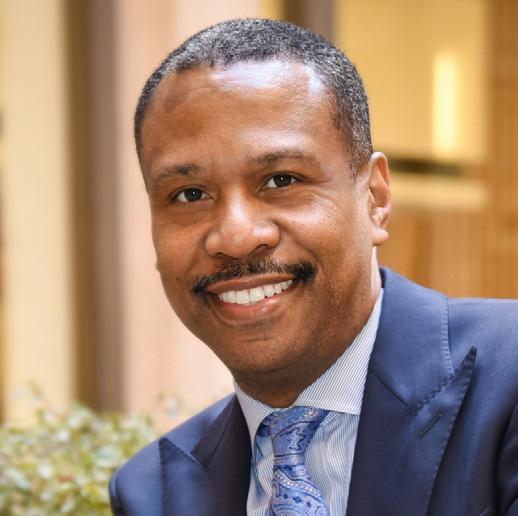
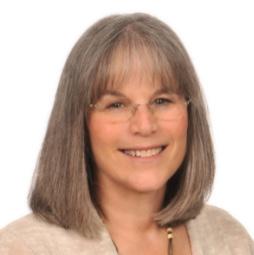
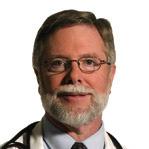
Elizabeth A. Dale, EdD, MPA
Associate Executive Director, P-CHE
Elizabeth A. Dale is the Executive Vice President for Institutional Advancement at Jefferson. With two decades of fundraising leadership experience, successfully completing comprehensive campaigns at Drexel and UMass, she is leading Jefferson’s first-ever comprehensive campaign, and championing P-CHE as a strategic philanthropic priority.
Joseph Hill
Associate Executive Director, P-CHE
Mr. Joseph Hill is a Senior Vice President and Chief Diversity Officer at Jefferson. Mr. Hill is often a speaker at national forums where he shares his insights and experience on the importance of diversity and strategic partnerships in both the for-profit and nonprofit sectors. Mr. Hill works to ensure the integration of diversity, equity, and inclusion initiatives and practices to ensure excellence in education, research, and patient care, and he will ensure these values are fully integrated into the vision and internal implementation of P-CHE.
Rickie Brawer, PHD, MPH, MCHES
Co-Director, Center for Urban Health
Dr. Rickie Brawer is an Assistant Professor in the Department of Family and Community Medicine and Co-Director of the Center for Urban Health at Jefferson. Dr. Brawer has expertise in community-based participatory research focusing on obesity, the built environment, developing low-literacy materials, coalition development and sustainability, men’s health issues, diabetes, cancer, and the development of a community wellness center. Dr. Brawer brings a high level of research, program development and evaluation, and coalition building expertise to the Philadelphia Collaborative for Health Equity.
James Plumb, MD, MPH
Co-Director, Center for Urban Health
Dr. James Plumb is a Professor in the Department of Family and Community Medicine and Co-Director of the Center for Urban Health at Jefferson. Dr. Plumb has a clinical practice in North Philadelphia with Project H.O.M.E. Dr. Plumb is a Faculty Advisor for a student-run Urban Health Initiative, Jeff HOPE, which addresses the healthcare needs of the homeless, and he is an expert in fostering partnerships with organizations serving underserved, diverse neighborhoods.

PHILANTHROPY
THE CATALYST FOR STRENGTHENING COMMUNITIES
With a vision of helping every Philadelphia family reach their full potential, Jefferson is launching the Philadelphia Collaborative for Health Equity to address the many social determinants that contribute to health disparities for so many communities in our city. Together, we can bring this vision to life.

Aims Philanthropic
Supporting Young Families
Education & Workforce Development
Invigorating Neighborhoods
Caring for Distinct Populations
We recognize that we don’t have all the solutions to meet this formidable challenge. No single effort can narrow the health disparities gap in Philadelphia. Instead, it will take the collaborative action of many—actions which aim to build trust in the partnership, learn from community and each other, and are responsive in meeting the real needs of the community – not what we think the community needs. It is in this spirit the Philadelphia Collaborative for Health Equity was formed, and it is this vision for the future of the city that continues to propel us forward.
Philanthropy is a catalyst for change. It allows us to support programmatic needs, launch new endeavors, and give all Philadelphians the resources they need to achieve the best quality of life. Together, we can make a real difference in Philadelphia, paving the way for other communities to follow.
Young Families Supporting
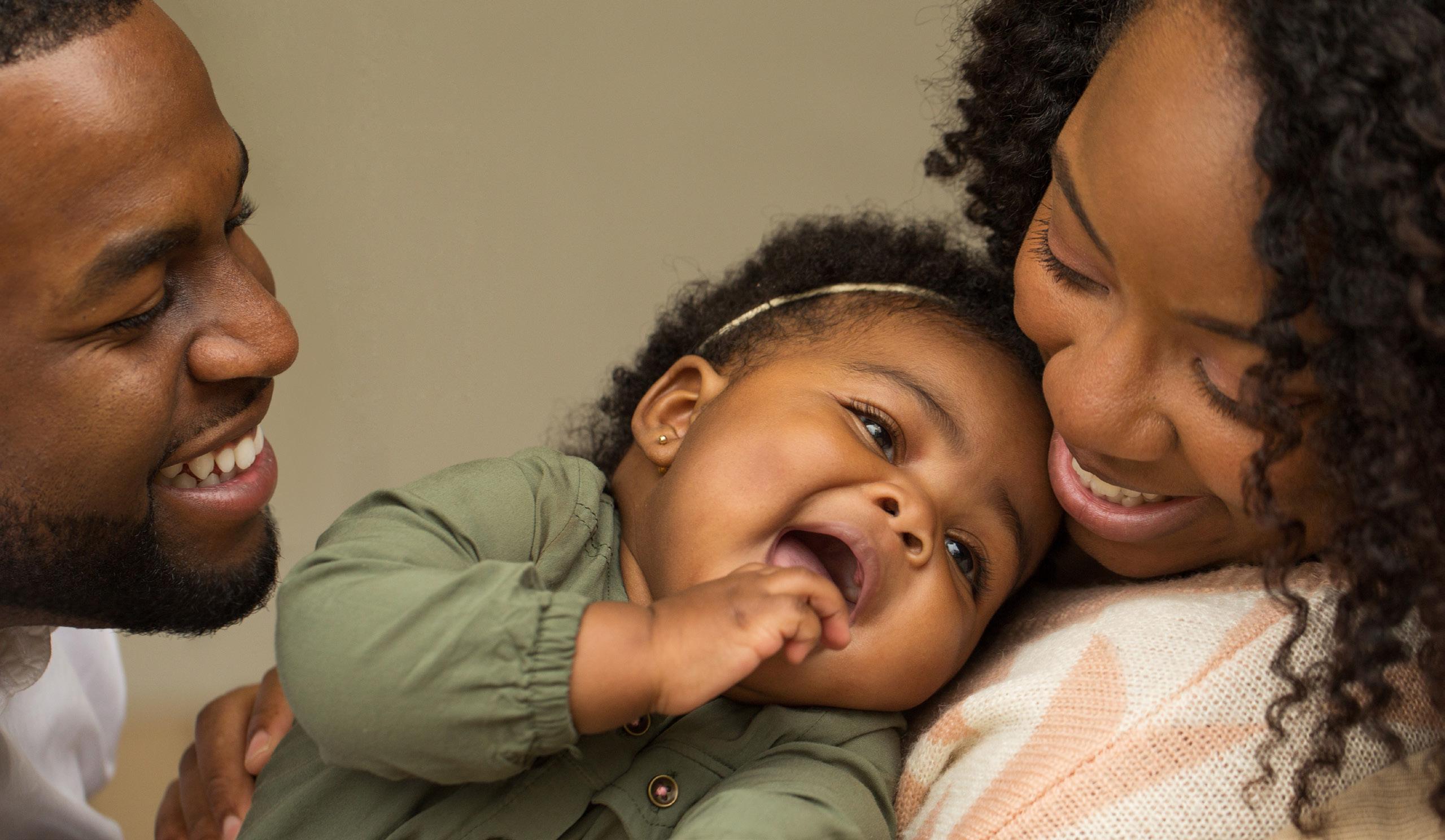
The struggles of living in America’s poorest big city are felt perhaps most acutely by young mothers and their children. In 2016, 61 percent of the city’s impoverished households were headed by women.
For these families, it is often a struggle to secure the necessities that many take for granted: finding safe, decent housing; feeding a family; getting a quality education; and seeking work in neighborhoods where opportunities are few.
At Jefferson, we are addressing this epidemic head-on by creating programs to help these struggling families get back on track. Your generosity is essential to sustaining our efforts and creating impactful new programs for this vulnerable population.
Financial Security and Training
Unemployment and labor force participation in Philadelphia is closely tied to educational attainment. In fact, the unemployment rate for those with a high school diploma or less is over 20 percent. Jefferson has pioneered several didactic and skill-based training programs designed to help the un- and under-employed gain stable employment with opportunities for additional skill attainment and advancement.
Community Health Workers
According to the Department of Labor, the need for community health workers is predicted to increase by 25 percent over the next ten years. Jefferson has created an affordable certificate program to help more individuals break into this lucrative career path.
Medical Assistant Academy
The Medical Assistant Academy provides students with a competitive edge as entry-level medical assistants in a variety of medical settings, such as hospitals, physicians’ offices, and other healthcare organizations.
Wealth and Health
The Building Wealth and Health Network is a financial empowerment program, founded by Drexel University’s Dr. Mariana Chilton, that has helped nearly 400 families improve their health, food security, and rates of employment. With philanthropic support is our vision to partner with the Building Wealth and Health Network and bring these services to more families in Jefferson’s catchment area.
Food Access and Nutrition
At this time, more than 20 percent of Philadelphia families lack access to affordable and nutritious food. The combination of stress and poor nutrition causes a vicious cycle that increases the risk of chronic diseases like high blood pressure and diabetes.
Jefferson is committed to helping families end the cycle once and for all, developing programs and partnerships designed to improve interventions for this unique patient population.
Heart Smarts
In 2014, the Food Trust unveiled the Hearts Smarts Program—in collaboration with the Jefferson Center for Urban Health and the Philadelphia Department of Public Health—which expands customer access to the information needed to make healthy choices as well as to free health screenings at participating stores.
Early Head Start
Early Head Start programs provide family-centered services for low-income families with very young children. Jefferson has partnered with an Early Head Start facility to develop a comprehensive early childhood nutrition and obesity prevention program designed to combat the prevalence of cardiovascular disease and other chronic conditions in at-risk children.
Food Insecurity Screening
Jefferson has initiated food insecurity screenings in the Emergency Department to determine if patients and their loved ones have access to healthy foods. Doing so allows for more targeted interventions for food insecure families.

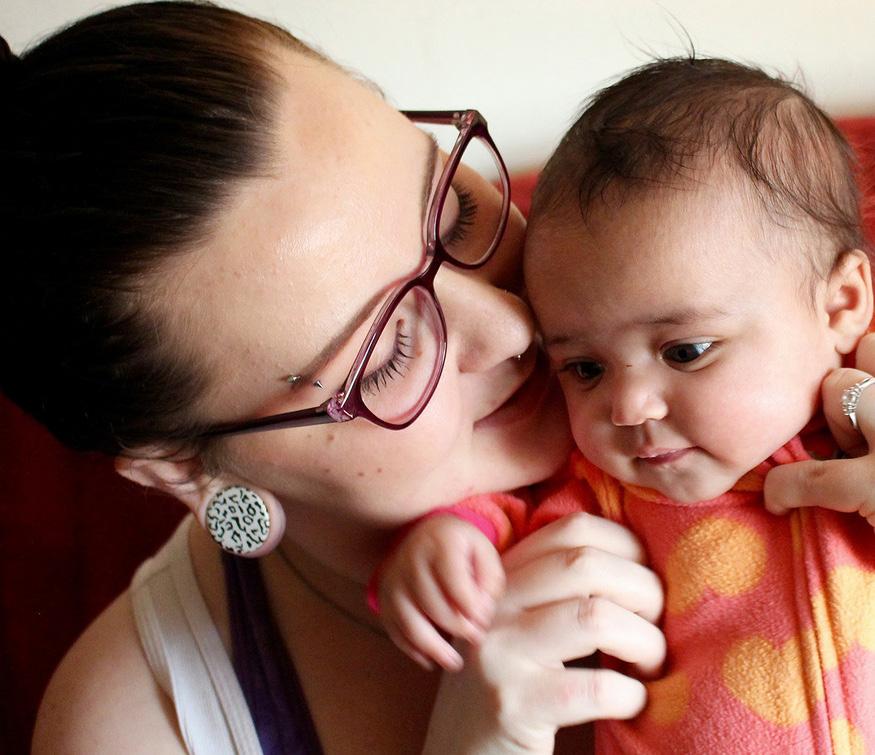
Coping with Trauma
A growing body of research has found that many of the traumatic life experiences faced by the poor, particularly in their childhood and young adult years, help perpetuate the condition of poverty.
As a trusted safety net provider covering more than two-thirds of Philadelphians, Jefferson is committed to helping individuals better cope with these experiences and break free of the negative feedback loop these traumas perpetuate.
MATER
For more than four decades, the hard-working men and women at Jefferson’s Maternal Addiction Treatment Education and Research (MATER) program have provided comprehensive care, education, and support to help mothers battling addiction make positive changes for themselves and their children.
J-TEN
The Jefferson Trauma Education Network (J-TEN) is designed to grow and nurture well-trained, healthy and sustainable human service workforces, to provide resources and support for families, communities and leaders, and to reduce barriers and support equitable access to services.
Childhood Trauma Studies
The Jefferson Community and Trauma Counseling (CTC) Program provides working professionals and Jefferson students with advanced trauma knowledge, skills, and competencies to promote healing and growth for children and families impacted by childhood adversity.
Development Education & Workforce
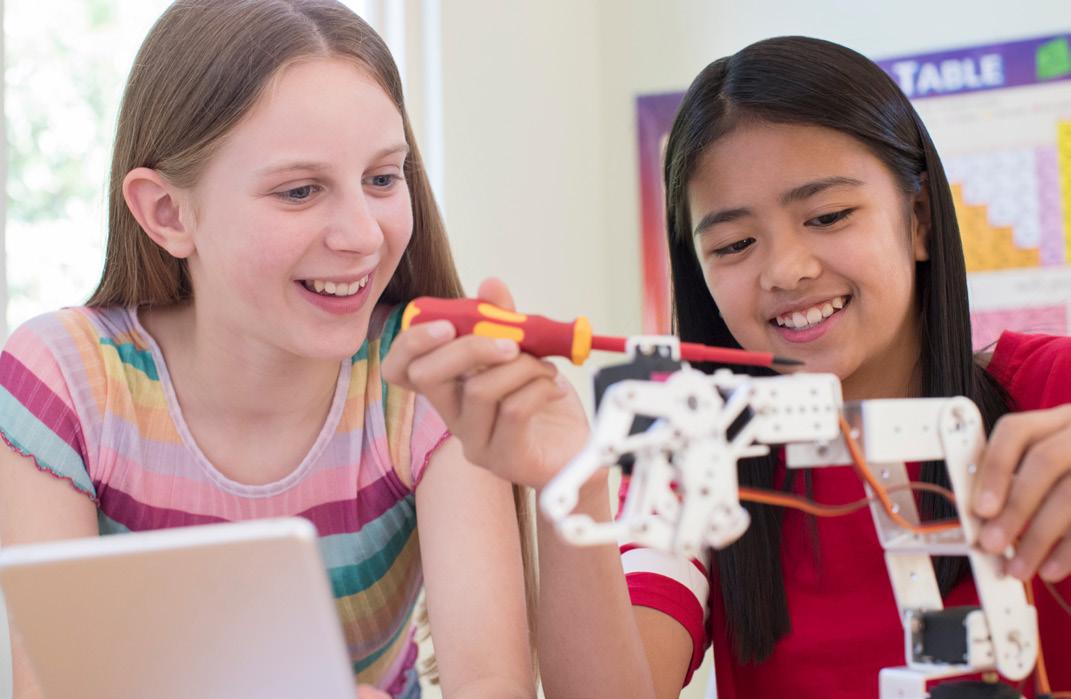
• Saturday Academy
As the middle school component of the Future Health Professionals Program, the Saturday Academy is a program for local students from underrepresented minority backgrounds to participate in educational activities for nine Saturdays throughout the academic year. Students participate in basic science lectures that serve as supplementary education in anatomy/ physiology, biology, chemistry, and math/biostatistics with a laboratory component that helps them gain laboratory skills. Additional experiential education opportunities focused on health-related professions are also integrated throughout each afternoon of the program.
• Public & Charter Schools
• Healthy Schools Assessment
• Leadership & Wellness Academy
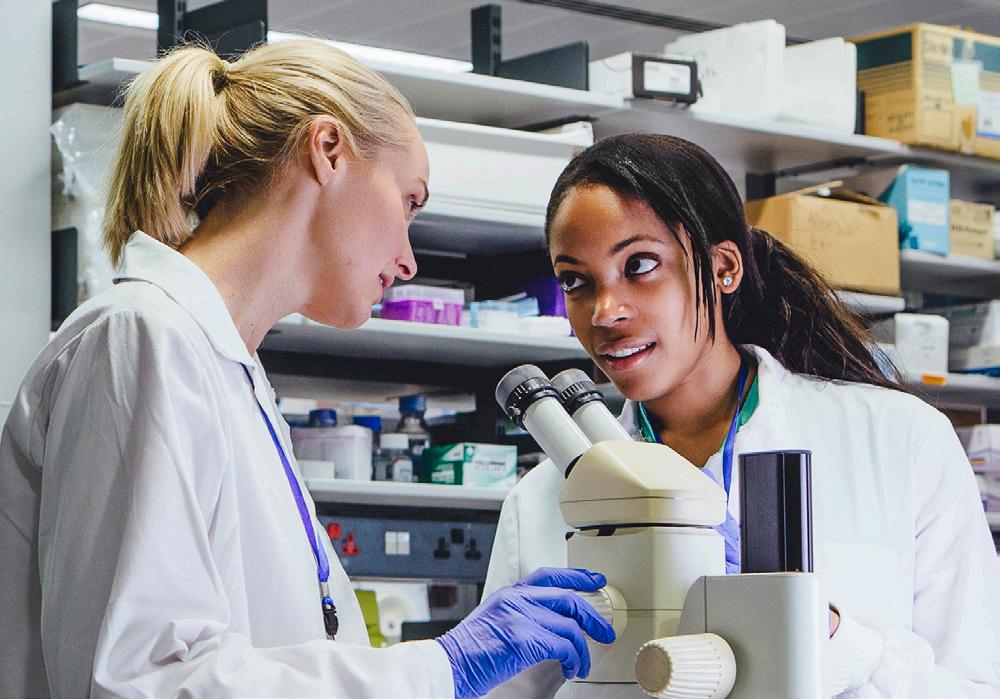
•
Future Health Professionals
The Future Health Professionals Program is a 16-week educational and experiential program for underrepresented minority high school sophomores, juniors and seniors interested in careers in the health professions and medicine. Student participants in the program are given a significant opportunity to interact with faculty and develop relationships with Jefferson student mentors to explore careers in medicine, nursing, and other health professions. These sessions are strategically designed to prepare participants for future health care careers while also helping them prepare for their next stage of education.
• Career Exploration & Preparedness
• Enrichment Programs
• Summer Science
• Biotechnology Curriculum
• Public and Charter Schools
• Work-Study Program
Philadelphia is home to some of the nation’s best academic institutions, yet it remains the poorest big city in America. Despite an influx of new jobs in recent years, the city’s unemployment rate remains unchanged at six percent. This is the paradox of poverty — while education and employment opportunities are plentiful, they remain largely unattainable for the city’s impoverished citizens. This, in turn, further diminishes the health and well-being of this vulnerable population.
Jefferson is working to break this cycle by developing a continuum of hands-on, low-to-nocost education and workforce development programs tailored to Philadelphia’s vulnerable communities. As we look to the future, philanthropic support is vital to expanding the reach, scope, and impact of these life-changing programs.

• STEP-UP Program
The Summer Training and Enrichment Program (STEPUP) at Jefferson is an intensive preparatory program designed to help underrepresented and underprivileged students gain the skills and confidence necessary to pursue a medical education and career.
- STEP-UP SKMC. Undergraduate juniors, seniors, and recent graduates.
- STEP-UP Nursing. Rising high school juniors and seniors.
- STEP-OT/PT. Undergraduate juniors, seniors, and graduates
• Reapplication Program
• Diversity Recruitment
• Health Exploration & Mentorship
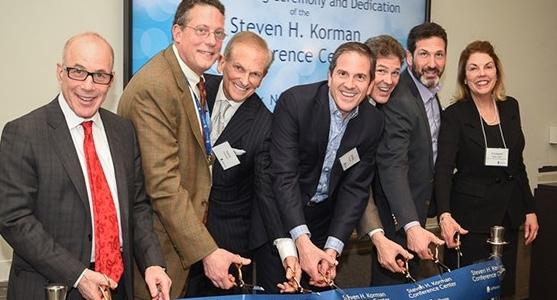
• Steven H. Korman Center for Community Engagement
The Steven H. Korman Center for Community Engagement helps disadvantaged and underemployed Philadelphians to secure in-demand jobs in healthcare by providing career training and support for GED attainment, comprehensive case management, and job placement.
The Center currently offers a community health worker certification with peer support specialist training, certified nursing assistant training, and certified medical assistant programs.
• Student Organization & Health Outreach
• Mentoring Program
• Retention
• Advanced Skills Training
• Career Pathways
Health Care Professionals Professional Development

Neighborhoods Invigorating
Philadelphia is truly a tale of two cities. While some neighborhoods are experiencing unprecedented commercial and residential development, large swaths of the city are being left behind, succumbing to ever-worsening blight and neglect.
At this time, the city is home to more than
40,000 vacant lots. Approximately 12 percent of Philadelphians lack access to green space. These conditions fuel rates of depression and feelings of stress and hopelessness among residents.
Unfortunately, the city lacks full funding to help reinvigorate these neighborhoods in need. Now, more than ever, philanthropy plays a crucial role in helping these communities thrive once again.
CoLab
Jefferson established CoLab Philadelphia (CoLab PHL) with a goal to convert a trailer into a mobile, multi-use platform to activate public spaces and create unique programming for Philadelphians in their neighborhoods.
With a seed grant from the TD Charitable Foundation, we have joined forces with Philly Cares to convert an Airstream trailer into a mobile platform designed to inspire and enable healthy eating behaviors for residents of Kensington. And we’re just getting started.
It is our ultimate vision to scale this project to many foodinsecure neighborhoods throughout the city in the form of interactive pop-ups and workshops. This exciting platform for collaboration and engagement will present community members with opportunities to create safe spaces where they can connect and directly engage with one another and the city’s medical communities.
With the support of our like-minded benefactors, we can bring this vision to life.
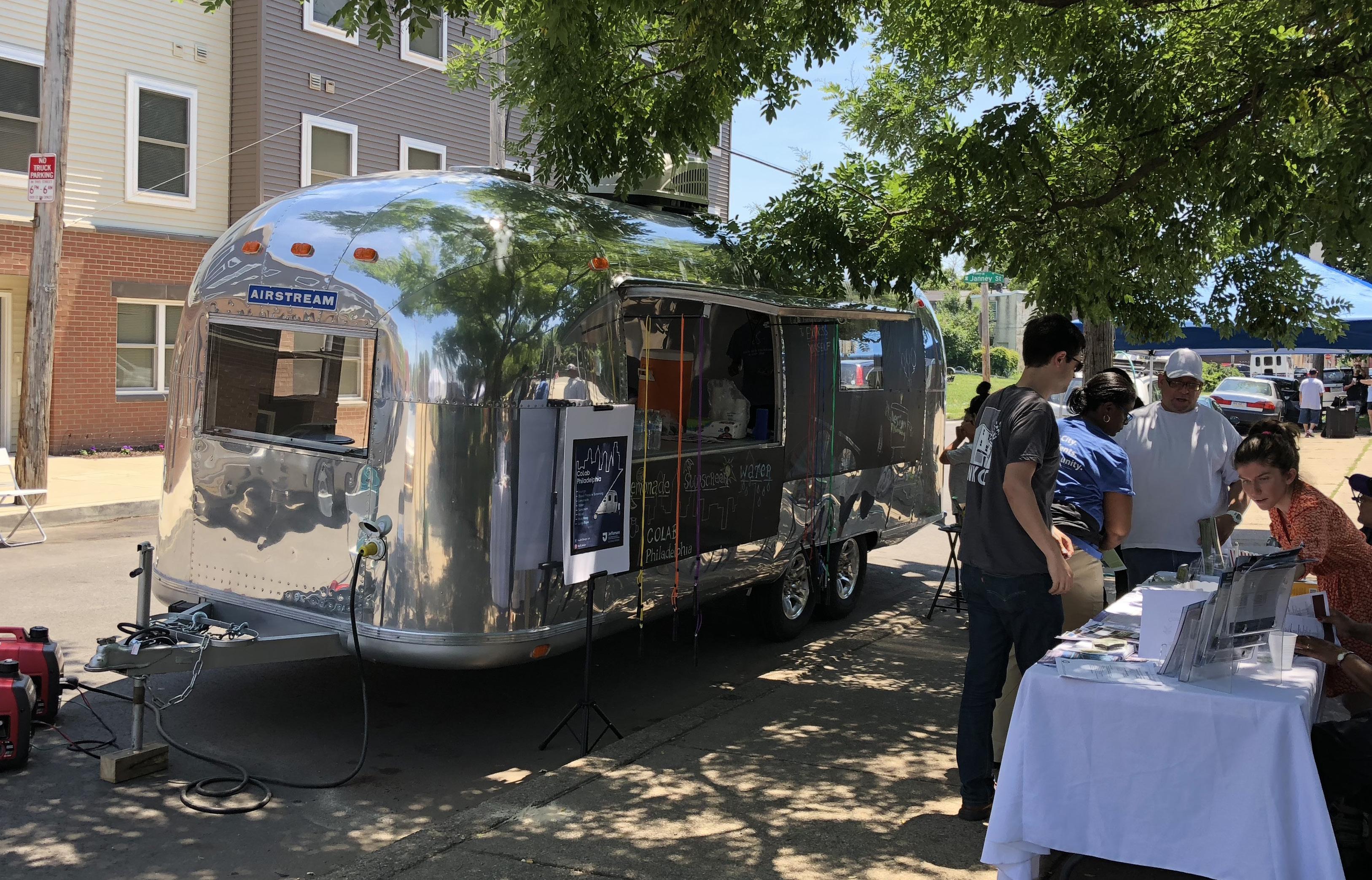
Park-In-A-Truck
Exposure to green spaces boosts mental health and psychological well-being beyond the benefits of physical activity alone. Still, many U.S. cities struggle to provide residents with equitable access to high-quality green environments, excluding many individuals — most frequently those from low-income, minority, and marginalized populations — from the wellness benefits that access to green spaces can provide.
Jefferson is building an infrastructure to provide every Philadelphia community with access to healthy outdoor environments where all individuals can live, work, and play — regardless of their socio-economic status.
Park-In-A-Truck presents an opportunity to create a community-operated green space network, established through fast-turnaround renovations of vacant lots. It’s an innovative, cost-effective way to mobilize members of low-income neighborhoods in a joint effort to improve the environmental, social, and physical health of their communities.
Before
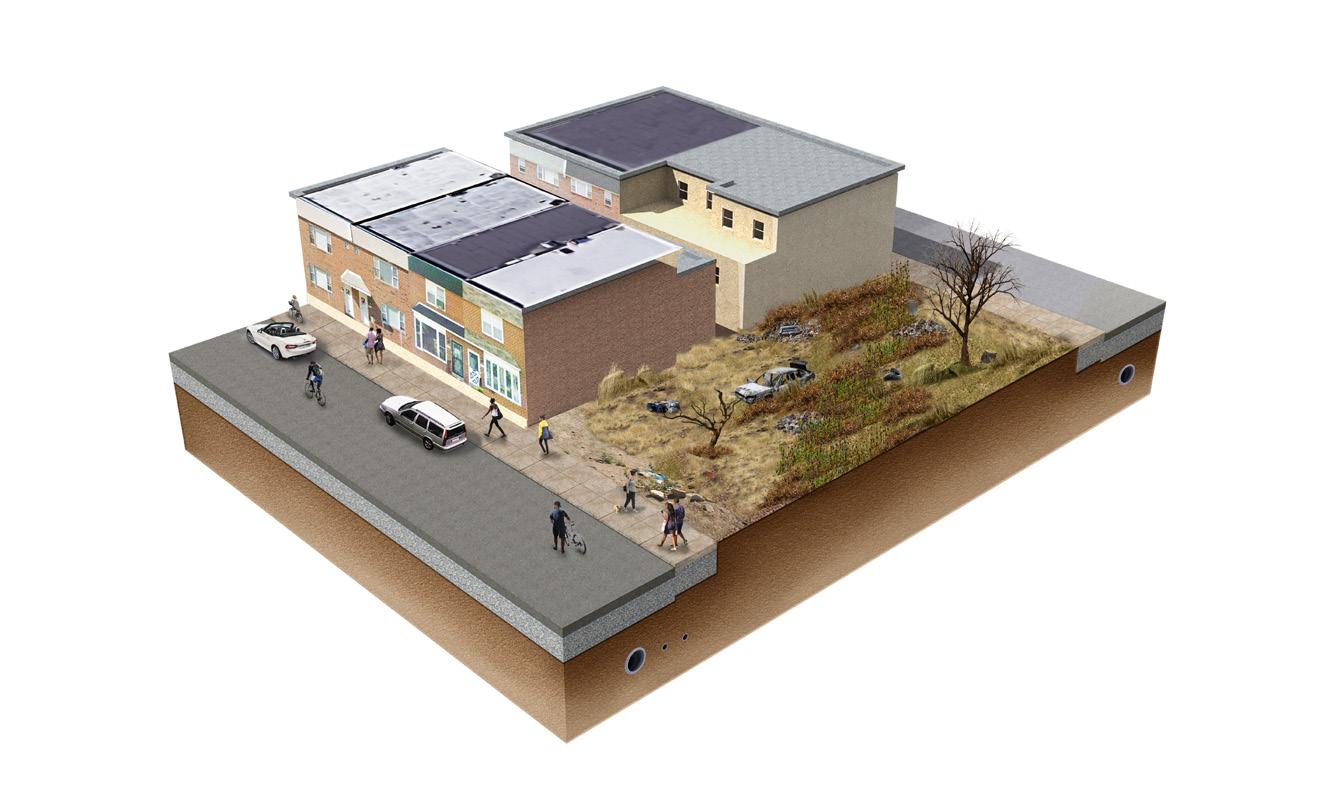
After
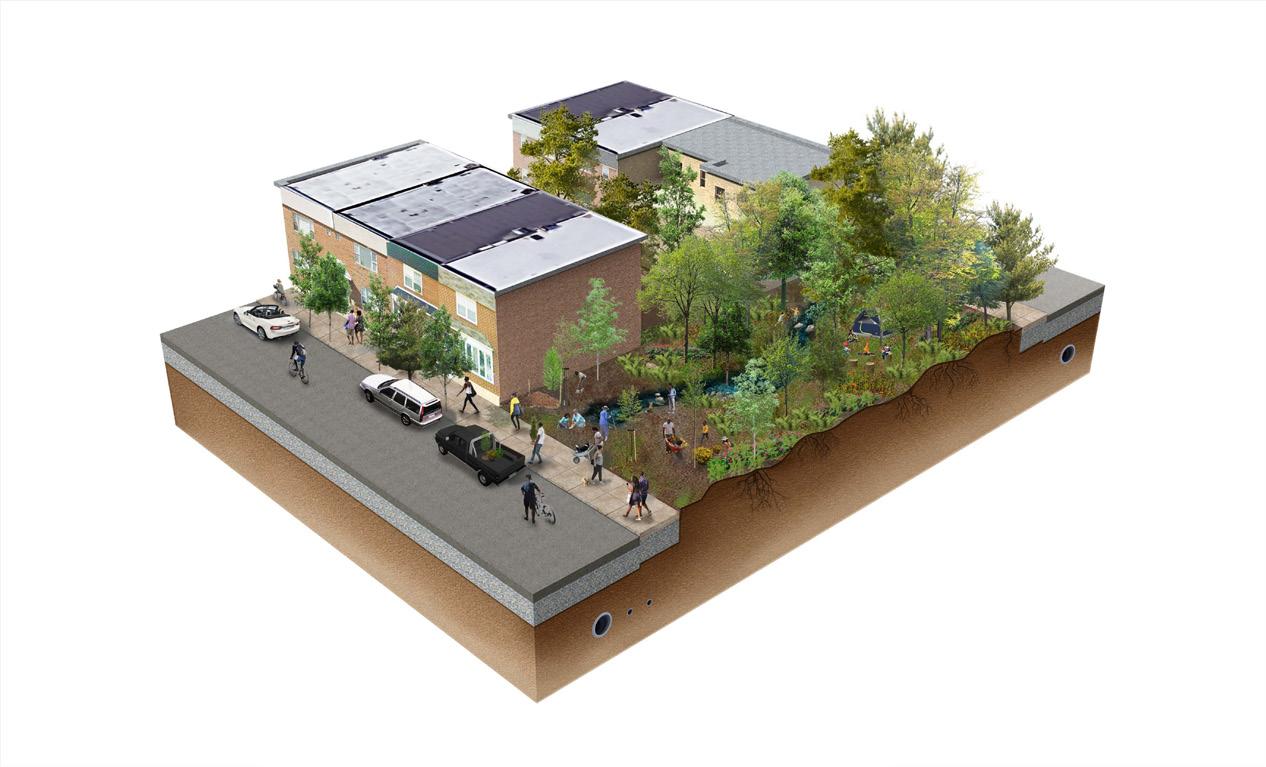
Distinct Populations Caring for
Home to a robust and growing immigrant and refugee population, Philadelphia is defined by its diversity. With this distinction comes unique cultural barriers to care that often go unaddressed by traditional academic medical institutions. As a result, 60 percent of immigrants don’t know where to turn when sick.
At Jefferson, we have a long history of delivering comprehensive, culturally appropriate care where it matters most — in the community. We are the destination of choice for a significant portion of non-native residents, and one of only four programs in the nation recognized as a Center of Excellence in Refugee Healthcare.
We are home to nationally recognized programs tailored to underserved populations, and our physicians are embedded in culturally diverse communities throughout the city. Philanthropy is invaluable to expanding the breadth and scope of these targeted programs, ensuring that more communities receive the best-in-class care they need and deserve. Jefferson program
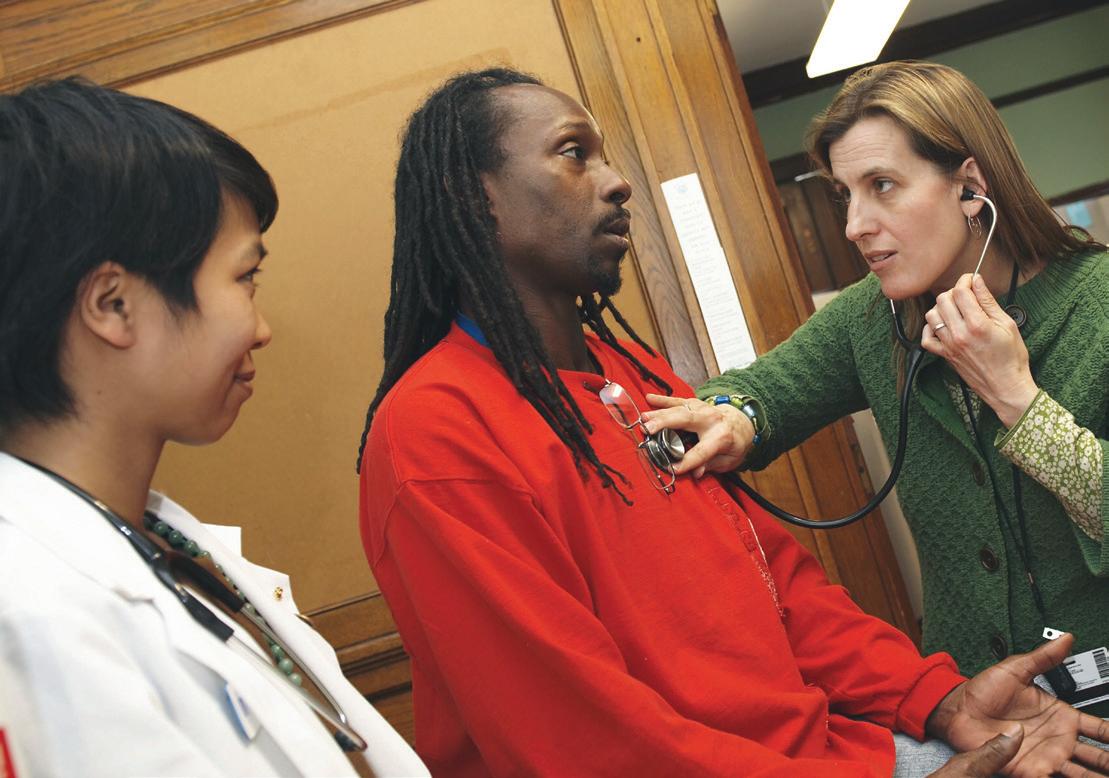
Latina Women’s Clinic
JeffHope
JeffHOPE (Health Opportunities, Prevention, and Education) is a student-run organization within Sidney Kimmel Medical College (SKMC). Its chief aim is to improve access to healthcare for the homeless and underserved population of Philadelphia by setting up health clinics in key shelters throughout the city.
It’s our hidden gem — a perfect encapsulation of Jefferson’s institutional values of putting people first, thinking differently, and doing the right thing. By supporting this life-saving program, your generosity will have a profound impact on our community, providing quality care to more Philadelphians who need it most.
The Jefferson Latina Women’s Clinic, operated in close partnership with Puentes de Salud, aims to improve community and individual health and wellness not only by providing immediate medical services, but also by acknowledging and challenging embedded social inequalities and injustices affecting Philadelphia’s underserved populations, particularly in the Latino community.
Our dedicated team works in partnership with community members, local public schools, universities, governmental institutions, and other nonprofit organizations to address the adverse structural, economic, and social conditions that profoundly affect the prosperity of this community. Philanthropy is central to our mission, ensuring that we can provide these vital services at little to no cost to our patients.
Philanthropic Vision
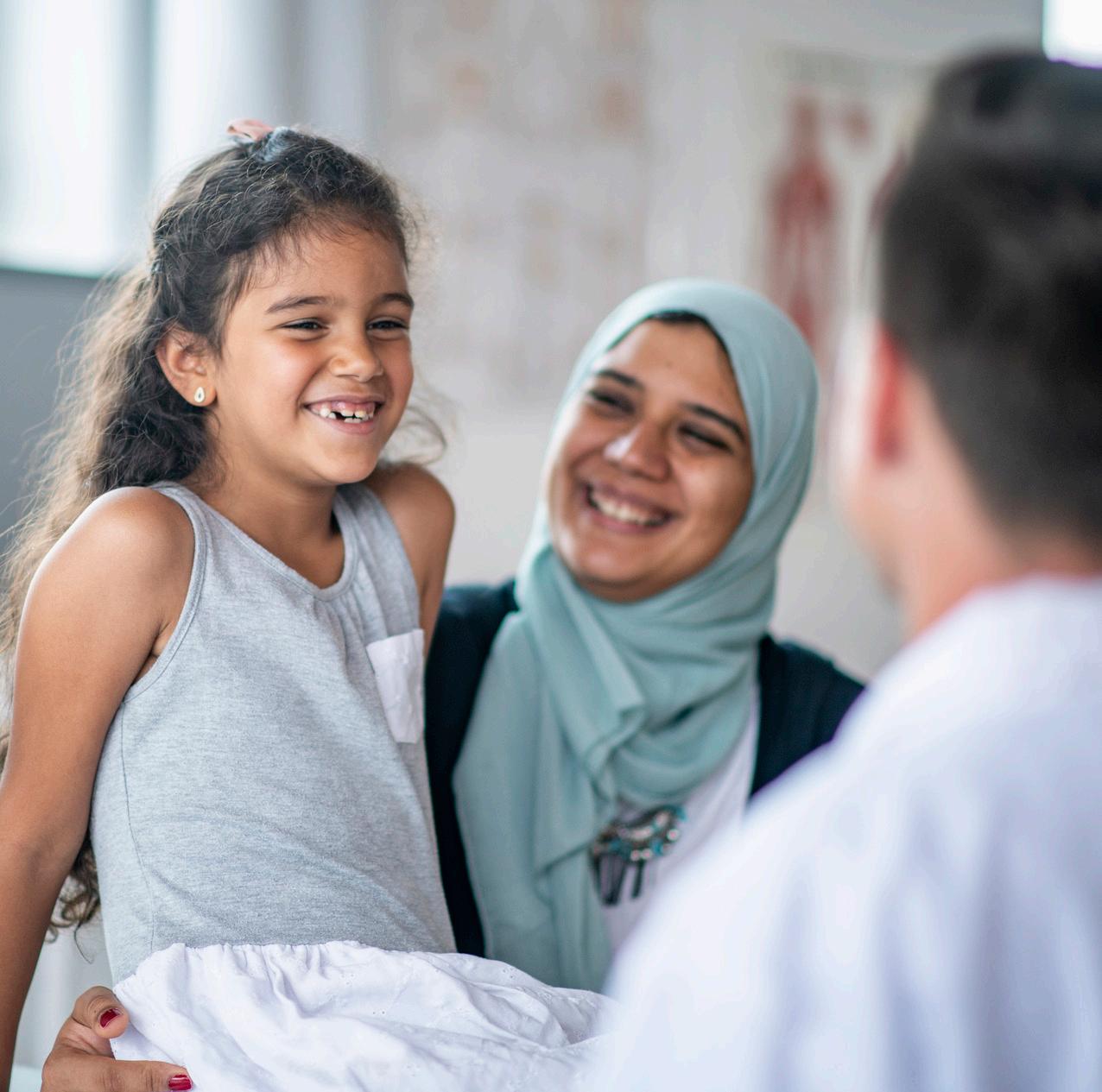
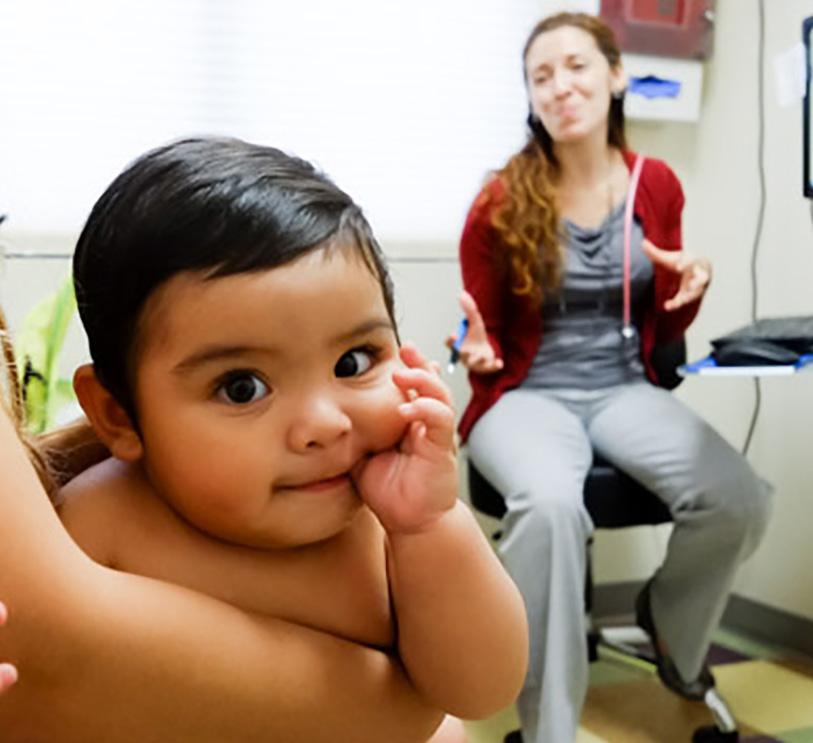
As Philadelphia’s underserved population continues to grow to record levels, so too must our presence in these overlooked communities. It is our vision to establish community healthcare hubs where patients can access the comprehensive care, health education, and advocacy services they so desperately need. Philanthropic support is vital to bringing this vision to life.
• North Philadelphia Family Resource Center. This facility will offer healthcare and crucial services such as job training and workforce development support, economic empowerment programs, food and nutrition education, and child care to families in Frankford and North Philadelphia.
• South Philadelphia Wellness Center. This center will serve as the hub of Jefferson’s clinical and educational outreach activities for the city’s southern neighborhoods, particularly targeting the area’s significant immigrant and refugee populations.

when we work together. is possible Real change

We are steadfast in our mission to help every Philadelphia family reach their full potential. But without visionary benefactors to power innovative and forward-thinking programs, they are likely to remain merely big ideas— tantalizingly out of reach for physicians and patients alike.
You are the difference. With a gift to support the Philadelphia Collaborative for Health Equity, you can help ensure that every Philadelphian has access to the resources and programs that will help create opportunities for everyone, regardless of socioeconomic circumstances. You create a legacy that will touch the lives of countless individuals. You give people hope.
With the brightest minds, boldest ideas, and a reputation for next-generation and compassionate care, we are uniquely poised to make the most of your philanthropic investment, transforming your generosity into sustained flourishing for our city.
An investment in Jefferson is an investment in the welfare of every Philadelphian. Thank you for helping them achieve the best possible quality of life.
Philadelphia
Thomas
Felicia
Philadelphia
Thomas Jefferson University and Jefferson Health
Felicia.Rinier@jefferson.edu
215-955-9291
